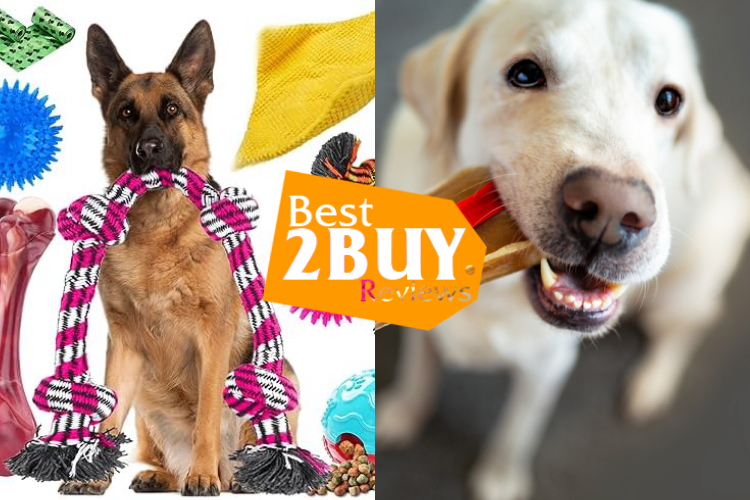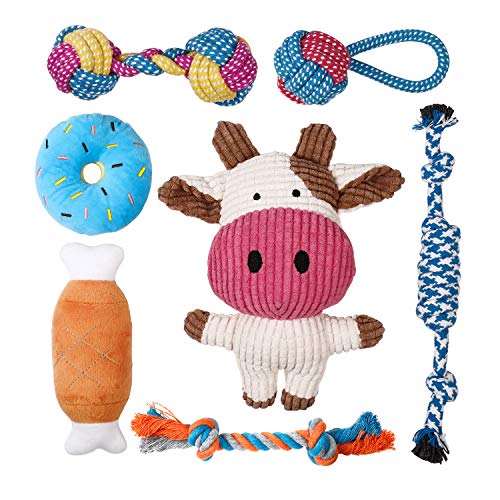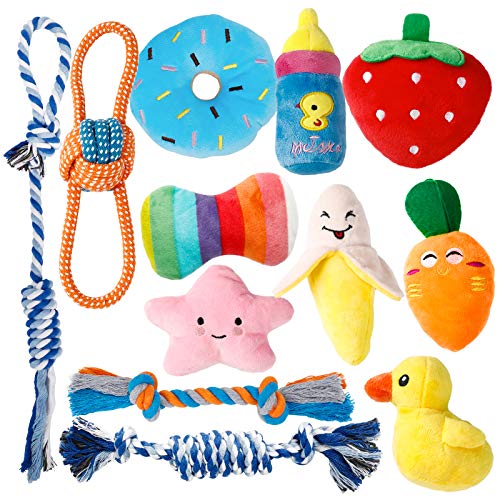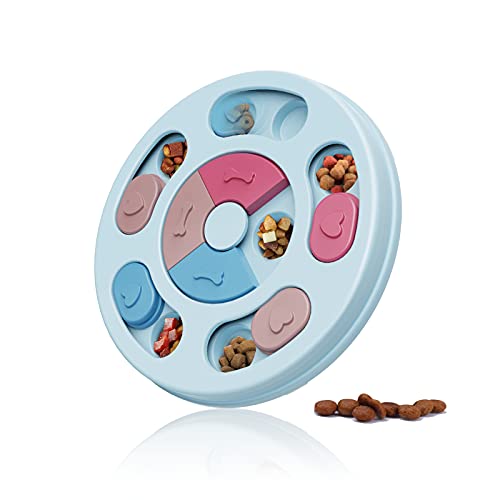Everything You Need To Know Before Choosing Chew Toys For Your Dog

Dogs are natural chewers, using their mouths to explore the world around them. If your dog doesn't have a suitable chew toy, they might end up targeting your shoes or furniture during their explorations. Having the correct chew toy not only saves your slippers but also promotes your dog's mental and physical well-being. However, it's essential to note that not all chew toys and treats are of the same quality. So, how can you select the appropriate chew toy for your dog? Let's delve into a guide to help you make the right choice.
Benefits of Dog Chew Toys
Chew toys offer a multitude of advantages to both dogs and their owners. Here are some of the primary benefits:
- Dental Health: Engaging with chew toys contributes to maintaining optimal oral hygiene by reducing the accumulation of plaque and tartar. It also supports gum health and can alleviate teething discomfort in puppies.
- Cognitive Stimulation: Dogs possess intelligence that requires regular mental engagement. Chew toys serve as a channel for their innate instincts, preventing boredom and deterring destructive behaviors.
- Physical Exercise: Specific chew toys, such as those designed for fetching or tugging, enable dogs to expend excess energy and remain physically active.
- Anxiety Alleviation: Chewing serves as a calming activity for dogs, aiding in relaxation and the reduction of anxiety or stress.
- Strengthening Bonds: Interactive chew toys, including puzzle toys and treat-dispensing toys, can enhance the connection between you and your dog as you partake in playtime together.
How to Find The Best Chew Toys for Dogs
Identify Your Dog's Chewing Habits
Before you choose a new chew toy for your canine companion, take some time to observe their current chewing habits. Determine which of the following descriptions aligns best with your dog's behavior:
- Gentle chewer : These dogs delight in licking, sucking on, and carrying their toys, typically favoring soft plush options. Toys designed for gentle chewers tend to have a longer lifespan.
- Average chewer: The majority of dogs fall into this category. A standard chewer may occasionally tear apart plush toys but generally won't annihilate tougher chew toys constructed from materials like nylon or rubber.
- Power chewer: As the name suggests, these dogs possess formidable chewing power. Plush toys barely survive their determined jaws, so opting for durable rubber, nylon, or edible chews is the wiser choice.
Evaluate your dog’s chew toys for safety
Have you ever found yourself standing in the dog chew toy aisle, gazing at the wide array of shapes, sizes, and flavors, all while grappling with a sense of uncertainty? Perhaps you've even brought your furry friend along to help pick out their ideal chew toy, only to witness them making a beeline for a plush toy that you knew would meet its demise within seconds. It's crucial to make informed choices when selecting a durable and safe chew toy for your dog. Follow these guidelines to ensure your dog's well-being:
Size: Choosing the right size is paramount. Toys that are too small can potentially become lodged in your dog's mouth or throat, leading to choking hazards. Refer to the weight chart provided on the toy's packaging to determine the appropriate size for your dog.
Hardness: The hardness of a chew toy is another crucial factor. Extremely hard toys can result in broken teeth and damage to your dog's enamel. Assess a chew toy's hardness through the following tests:
- Thumbnail Test: If you can press your thumbnail into the toy's surface without leaving any indentation, it's too hard for your dog and could risk damaging their teeth.
- Bending Test: While we don't encourage you to actually break the toy, give it a good squeeze and use your best judgment. If it's excessively rigid, consider an alternative.
- Knee Test: If a chew toy feels excessively hard and causes discomfort when you tap it against your knee, it's too hard for your dog.
Durability: You'll want a chew toy that lasts longer than just the ride back home from the store, especially considering their price. Be aware that a toy that is too soft or poorly constructed can be quickly dismantled by your dog, potentially leading to choking hazards from small pieces.
Coating: Be cautious of edible chew toys with flavored coatings, as they can upset your dog's digestive system. Opt for plain, unflavored chew toys to prevent any digestive issues.
Washability: Chew toys tend to get dirty fairly quickly, so it's essential that they are made from materials that can be easily cleaned and disinfected to maintain your dog's health and hygiene.
Steer clear of hazardous dog chew toys
While every chew toy carries inherent risks, some are more perilous than others. It's crucial to avoid the following types of toys to minimize the risk of injury to your beloved canine companion:
- Bones: Although bones may appear to be a sturdy option for power chewers, they are often hard enough to cause dental damage to your dog. Sharp fragments from broken bones can potentially puncture your dog's throat or become lodged in their esophagus. Whether they are cooked or raw, bones are simply too tough for dogs to safely chew.
- Cow Hooves: Similar to bones, cow hooves can lead to tooth fractures or splinter into hazardous shards. Their circular shape presents an additional danger, as hooves can become entangled around your dog's lower jaw, particularly behind the canine teeth. This often necessitates intervention from a veterinarian for removal.
- Antlers: The hardness of antlers can result in tooth breakage, and their sharp points can cause harm to your dog's gums, throat, and even lead to oral puncture wounds.
- Rawhides: These popular chew toys are crafted from chemically processed animal hides and can become contaminated with bacteria that may pose health risks to both you and your dog. Large pieces of rawhide can become lodged in the digestive tract, and their removal may require abdominal surgery.
To ensure the safety and well-being of your furry friend, it's essential to steer clear of these dangerous chew toy options.
Explore safer alternatives for your dog's chewing needs
Seek advice from our veterinarians for personalized recommendations tailored to your dog's specific needs. Additionally, consider opting for chew toys that have successfully passed our rigorous safety assessments. Here are a few excellent choices:
- Durable Nylon or Rubber Chew Toys: When selecting nylon or rubber chew toys, prioritize those that are sturdy enough to withstand vigorous chewing while also providing some flexibility to prevent potential tooth damage. Some rubber toys come with hollow centers, allowing you to conceal treats or fill them with peanut butter. You can even freeze these stuffed toys for a long-lasting and delightful treat for your furry companion.
- Edible Chews: Edible chews are often easier for your dog to digest. Look for products approved by the Veterinary Oral Health Council (VOHC), as these have been proven to help prevent the buildup of plaque and tartar on your dog's teeth.
- Rubber Balls: A hard rubber ball is an excellent choice for a game of fetch, provided your dog cannot easily dismantle it. Make sure the ball is appropriately sized for your dog to ensure both safety and enjoyment during playtime.
In conclusion, dog chew toys offer more than just amusement – they offer a multitude of advantages for your beloved canine companion. Whether it's promoting dental health, stimulating their mental faculties, or fostering stronger bonds, the appropriate chew toy can have a profound impact on your dog's holistic wellness. By exploring the various kinds of chew toys on the market and making safety a top priority, you can guarantee that your dog remains content, in good health, and actively engaged during playtime.











